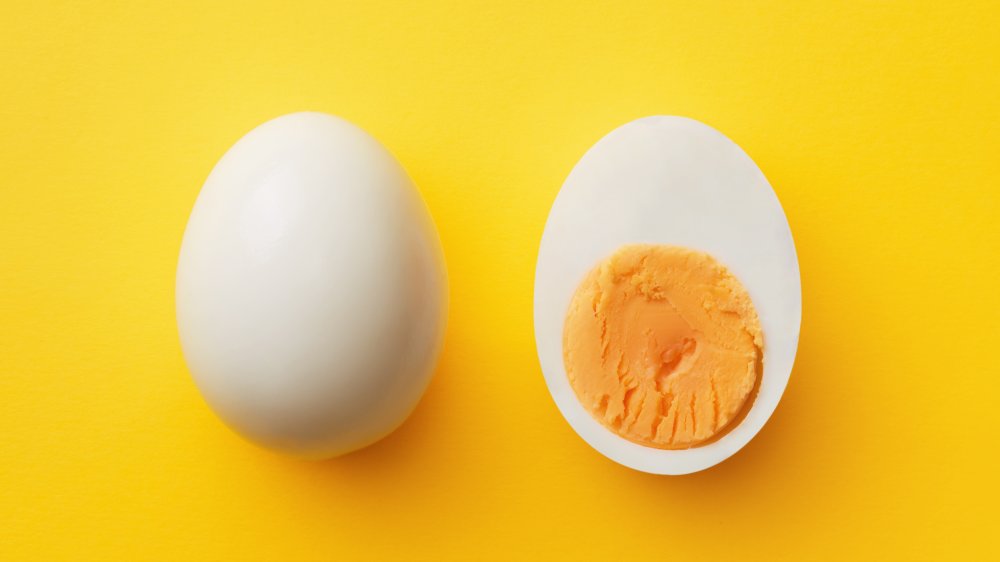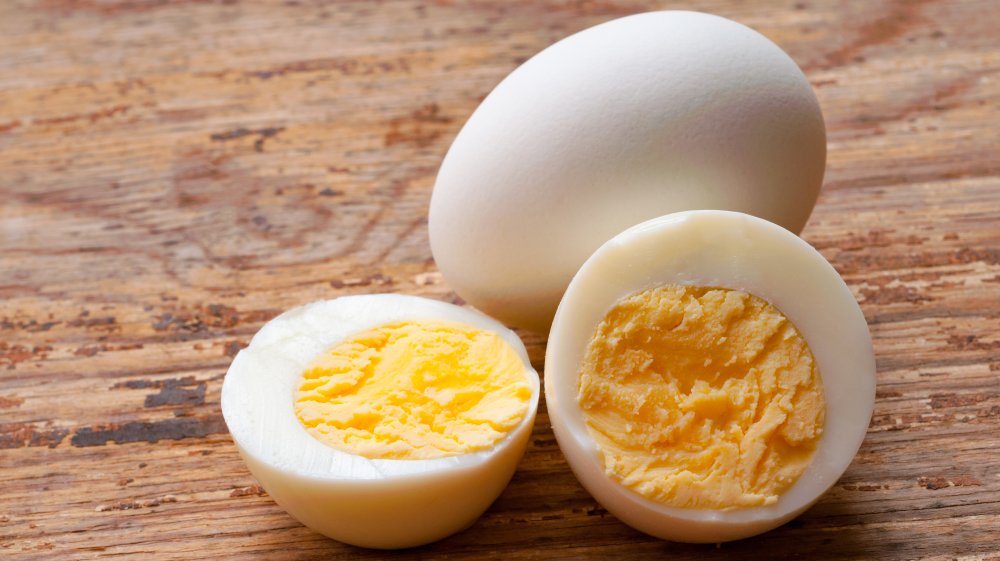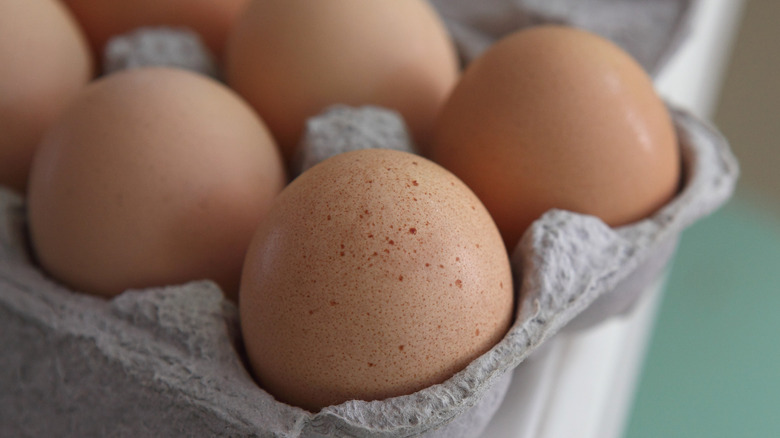How Long Are Hard-Boiled Eggs Good For?
With a preparation that requires no cracking, scrambling, poaching, or frying, hard-boiled eggs are about as simple as it gets. They're high in protein as well as loaded with essential vitamins and can be used in a variety of different dishes for all meals of the day (per Verywell Fit).
It can seem like raw eggs stay fresh forever, and you might think that the same concept applies to eggs once they've been cooked — but that's not entirely correct. Hard-boiled eggs do have a best-by date and they actually stay good for a shorter period of time than their fresh counterparts (per Healthline). One of the reasons for this is because when the eggs are boiled, the hot water removes the protective membrane called an egg bloom that surrounds the fresh egg (per Better Hens and Gardens).
Once this layer is gone, it causes the egg to be more vulnerable to naturally occurring microorganisms in the environment, causing them to potentially spoil and go bad. Of course, this only applies to farm-fresh eggs, as their commercial counterparts are cleaned after laying and before they're shipped to your grocer (which is why eggs need to be kept in your refrigerator).
This is how long you can keep your hard-boiled eggs in the refrigerator
So let's say you've got some perfectly boiled eggs that you plan on saving for a bit. Maybe you simply have too many or painted flawless knockoffs of Fabergé eggs for Easter and can't quite bear to part with them immediately. According to the United States Food and Drug Administration, hard-boiled eggs can be eaten for up to one week after they've been cooked. If you are going to store your eggs after cooking them, they should be still in the shell, as peeled hard-boiled eggs should be consumed the same day that you cook them (per Country Living).
It is recommended that you store them in the refrigerator in order to inhibit the growth of bad bacteria. They shouldn't be kept in a refrigerator door because that can cause the temperature of the egg to fluctuate due to the frequent opening and closing of the door. Because of the porous nature of the shell, you should also keep them away from pungent foods unless you want them to pick up the flavor of whatever dish is smelling strongly in your refrigerator.
If you hard boil eggs often, it can also be helpful to write the cooking dates on the shell of each egg in order to remind yourself how long ago they were boiled.
Cooked eggs and egg dishes
So you now know about in-shell, hard-boiled eggs – but what about dishes containing cooked eggs? Does the same "one-week" guidance apply? Not quite. Fortunately, the FDA has a YouTube video that provides guidelines for how to safely serve, store, and re-serve egg-containing dishes.
According to the FDA, cooked eggs and dishes containing eggs should be served "immediately after cooking." If it's a hot egg dish that's going to be reheated after sitting in the fridge, be sure to bring it up to 165°F before serving, and refrigerate leftovers within two hours. And if it's a cold dish, plan to keep it on ice if it's going to be out in the open for more than two hours.
The main idea when serving egg dishes is to keep them out of the 40°F to 140°F temperature window in which certain illness-causing bacteria can grow. So cold dishes should be served cold, and hot dishes should be hot. Leftovers can be refrigerated but should be used within three to four days.
What's all the fuss about?
One of the main health concerns around eggs is potential contact with Salmonella. "Salmonella" is the name for a large group of bacteria: More than 2,500 variations exist, according to the Centers for Disease Control. But the number of types that infect humans is fewer than 100.
Salmonella infections don't just come from raw eggs, either. Outbreaks of the bacteria have been linked to human contact with everything from turtles to pet bearded dragons, according to the CDC. But according to the Mayo Clinic, the most common site of transmission for humans is contaminated food and water.
If you happen to get a Salmonella infection, you probably won't miss it: According to the FDA, most cases of salmonellosis result in such symptoms as vomiting, diarrhea, cramps, and fever within 12 to 72 hours. Fortunately, the illness usually runs its course within four to seven days and doesn't require a trip to the hospital. Severe cases of diarrhea, however, may need medical treatment.



